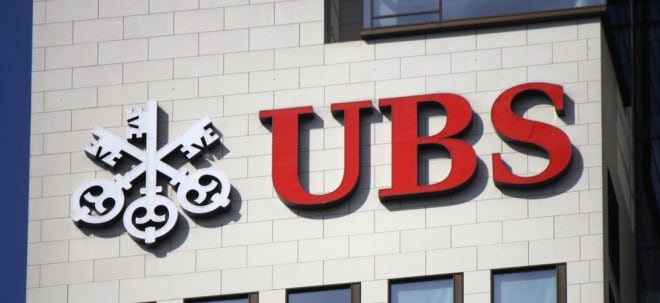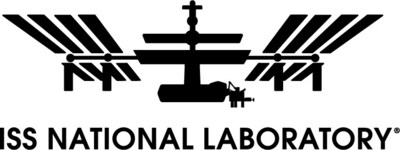Private Astronaut Mission Includes Research to Open Space to Astronauts With Diabetes and Enable Early Cancer Detection
Axiom Mission 4 partners with ISS National Lab to conduct the most research to date on a private astronaut mission
KENNEDY SPACE CENTER, Fla., June 5, 2025 /PRNewswire/ -- Axiom Space's fourth private astronaut mission to the International Space Station (ISS) will launch more research than any previous private Axiom Space mission, including more than two dozen investigations sponsored by the ISS National Laboratory®. With more than 60 experiments representing 31 countries, Axiom Mission 4 (Ax-4) demonstrates the growing demand from researchers to leverage the space station.
The Ax-4 crew includes Axiom Space Director of Human Spaceflight and former NASA astronaut Peggy Whitson (commander), Shubhanshu Shukla of India (pilot), Sławosz Uznański-Wiśniewski of Poland (mission specialist), and Tibor Kapu of Hungary (mission specialist). The mission is scheduled to take flight on a SpaceX Falcon 9 rocket and the company's Dragon spacecraft from Launch Complex 39A at NASA's Kennedy Space Center in Florida no earlier than June 10, 2025, at 8:22 a.m. EDT. The crew will spend about two weeks onboard the orbiting laboratory.
The ISS National Lab is proud to partner with Axiom Space to sponsor research and development in a new era of private astronaut missions to the space station. Many of the investigations on this mission build on previous research in low Earth orbit, enabling accelerated discovery. A few highlights of ISS National Lab-sponsored payloads include the following:
- Diabetes affects more than 500 million people worldwide, according to the International Diabetes Foundation. People with diabetes have historically been disqualified from living and working in space. However, Axiom Space, in partnership with Burjeel Holdings, a private healthcare services provider in the United Arab Emirates, aims to demonstrate that astronauts with insulin-dependent diabetes can complete short-duration stays in microgravity. The Suite Ride project will test the accuracy of glucose monitoring in space, the ability to transmit this data to Earth, and the viability of insulin onboard the space station. This research could enable people with diabetes to participate in future space missions, expanding access to space.
- A project from Booz Allen Hamilton will test wearable biometrics technology in space. An Axiom Space crew member will wear an Oura Ring, which measures key metrics like heart rate and sleep quantity and quality. The project will test the ability to store and analyze data collected by the ring. The data will be processed by an edge computing device on station to provide near real-time feedback. In the future, biometric data could be used to help predict crew member performance and optimize the completion of tasks and activities during spaceflight. Biometrics technology could also benefit industries on Earth that rely on skilled human performance.
- The Sanford Stem Cell Institute at the University of California, San Diego (UCSD) will build on research from previous Axiom Space missions that studied cancer growth in space. This investigation will use tumor organoids to validate previous findings on early warning signs of cancer to better predict and prevent the disease. The study will also explore how an improved model of triple-negative breast cancer responds to therapeutics in space. The findings could provide new insights into cancer cell behavior and help researchers identify novel therapeutic targets for metastatic cancers.
- An experiment from the Hungarian to Orbit (HUNOR) Astronaut Program will study how the space environment affects human perception. In some astronauts, exposure to microgravity during spaceflight may induce orientation illusions, sensory localization errors, and changes in a person's visual perception. A better understanding of gravity's role in people's sense of orientation within their environment could identify issues that affect astronauts' psychological well-being and physical and mental health, contributing to the success of future missions.
- Another experiment from the HUNOR Astronaut Program will compare the germination, growth, and nutrient absorption of plants grown in space. The project will investigate the impact of low selenium concentrations on the plants' production of vitamins, proteins, minerals, and other nutrients. Results could support improvements to hardware and processes for growing plants on long-duration missions to provide fresh food and support crew mental health and well-being. The results could also impact agricultural practices on Earth, particularly in resource-poor or urban farming environments.
You can read more about these investigations and others on this mission on Axiom Space's Research Overview and the ISS National Lab's launch page. To learn more about how the ISS National Lab enables valuable research and development onboard the space station, visit our website.
Download a high-resolution image for this release: Axiom Mission
About the International Space Station (ISS) National Laboratory:
The International Space Station (ISS) is a one-of-a-kind laboratory that enables research and technology development not possible on Earth. As a public service enterprise, the ISS National Laboratory® allows researchers to leverage this multiuser facility to improve quality of life on Earth, mature space-based business models, advance science literacy in the future workforce, and expand a sustainable and scalable market in low Earth orbit. Through this orbiting national laboratory, research resources on the ISS are available to support non-NASA science, technology, and education initiatives from U.S. government agencies, academic institutions, and the private sector. The Center for the Advancement of Science in Space® (CASIS®) manages the ISS National Lab, under Cooperative Agreement with NASA, facilitating access to its permanent microgravity research environment, a powerful vantage point in low Earth orbit, and the extreme and varied conditions of space. To learn more about the ISS National Lab, visit our website.
As a 501(c)(3) nonprofit organization, CASIS accepts corporate and individual donations to help advance science in space for the benefit of humanity. For more information, visit our donations page.
Media Contact: | Patrick O'Neill |
904-806-0035 | |
International Space Station (ISS) National Laboratory |
1005 Viera Blvd., Suite 101, Rockledge, FL 32955 • 321.253.5101 • www.ISSNationalLab.org |
![]() View original content to download multimedia:https://www.prnewswire.com/news-releases/private-astronaut-mission-includes-research-to-open-space-to-astronauts-with-diabetes-and-enable-early-cancer-detection-302474656.html
View original content to download multimedia:https://www.prnewswire.com/news-releases/private-astronaut-mission-includes-research-to-open-space-to-astronauts-with-diabetes-and-enable-early-cancer-detection-302474656.html
SOURCE International Space Station National Lab


